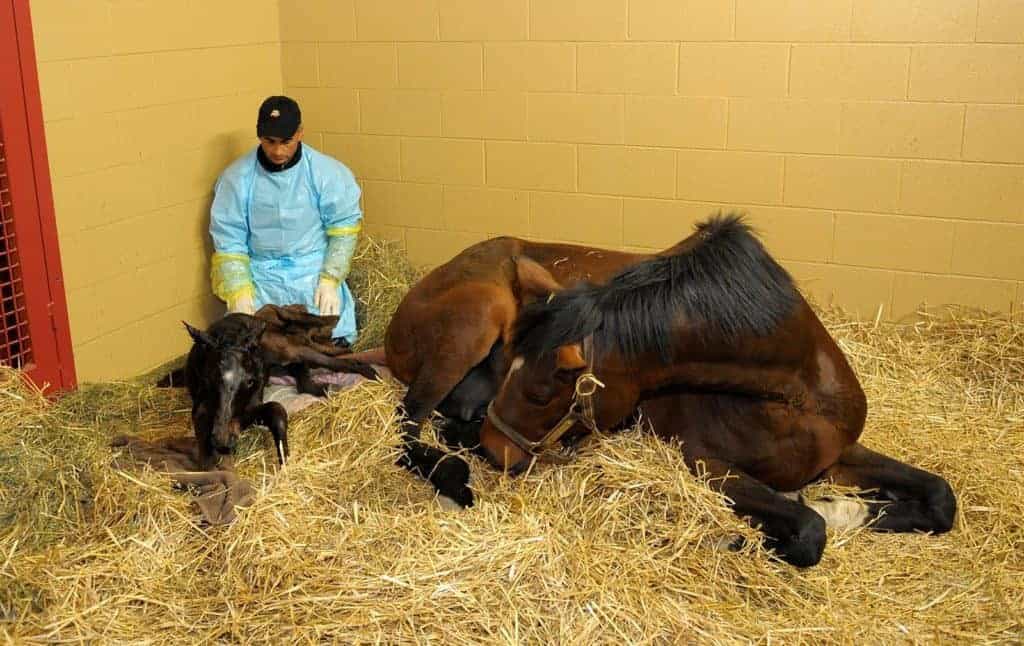
Problematic Behavior in Nonpregnant Mares: Is it Reproduction-Related?
Vets should perform a careful assessment of a mare’s hormonal status to determine whether there’s a definitive, repeatable relationship between it and her undesirable behavior.

Vets should perform a careful assessment of a mare’s hormonal status to determine whether there’s a definitive, repeatable relationship between it and her undesirable behavior.

Dr. Michelle Linton offers suggestions on how to identify when your mare is ready to foal.

University of Pennsylvania’s Dr. Michelle Linton describes the how a normal foaling should progress.

Nocardioform placentitis affects late-gestation mares, causing abortion, stillbirth, or foals born alive but compromised.

Do you have a foal due? Learn how to prepare your mare for foaling, care for your newborn, and spot issues early.

Removing the ovaries won’t fix other issues, from static shock to bladder adhesions, that can make mares behave badly.

Researchers compared foaling prediction methods and recommend using a combination of available techniques.
Presentation topics will include metabolic issues, breeding, melanoma, lameness in prepurchase exams, and more.

Listen to audio features on equine learning, behavior, dentistry, metabolic syndrome, parasites, and more.

Horses secrete more insulin during winter, which could pose problems for some pregnant mares, researchers say.
Lecture topics will include parasitology, gastric ulcers, fescue management, respiratory conditions, and more.

Foal Patrol’s webcams will allow the public to view real-time streams of mares during pregnancy through foaling.

Among other results, scientists found that foals born to light-therapy mares were more mature at birth and grew faster.

Laboratory results show the stem cells can differentiate into fat, bone, cartilage, and muscle tissue.

Researchers are studying whether magnetic nanoparticles could effectively separate “X” and “Y” stallion spermatozoa.

Top tweets and take-homes from sessions on biosecurity, ethics, handling rank horses in the field, and more!
Stay on top of the most recent Horse Health news with
Notifications